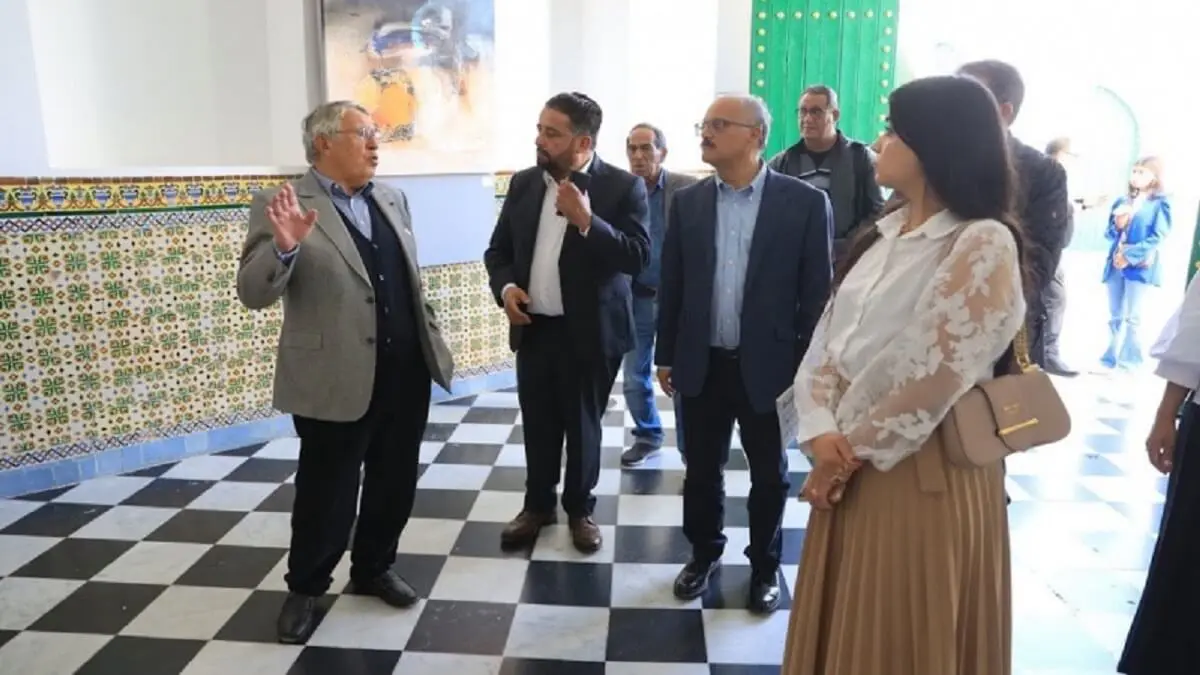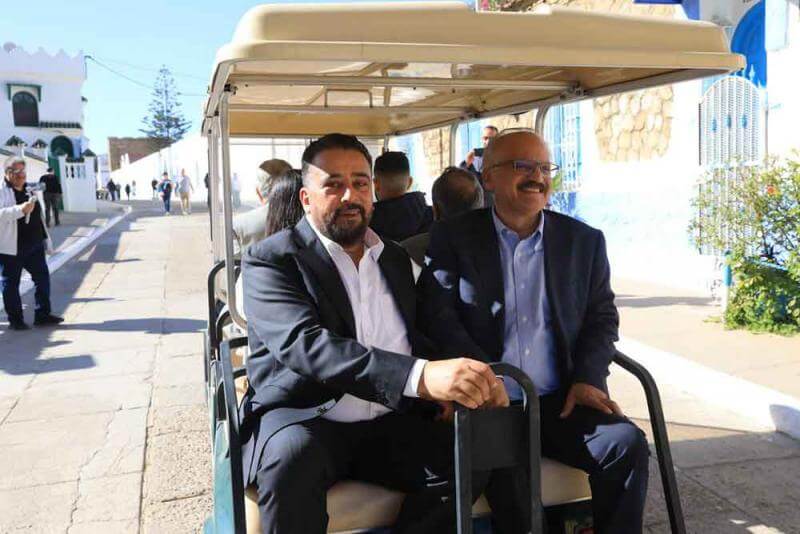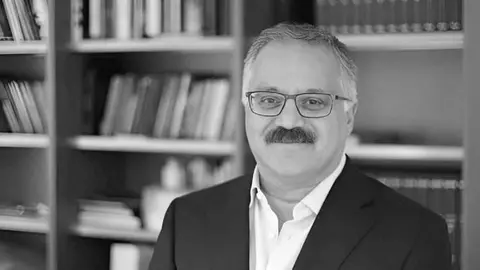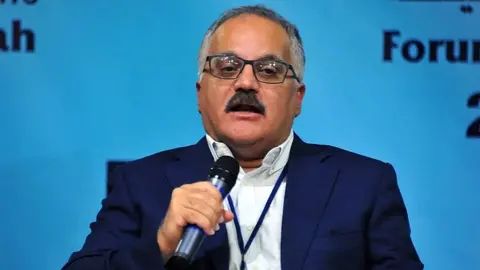Haitham El-Zobaidi: a media icon who died too soon

Dr Haitham El-Zobaidi left this life early, leaving behind an immortal legacy of journalistic, intellectual and humanitarian contributions, fond memories and a great reputation among all who knew him closely or followed him from afar. He combined the qualities of seriousness, initiative, altruism and diligence with clarity of vision, firmness of position and courage of opinion.
After obtaining a bachelor's degree in Nuclear Engineering from the University of Baghdad, where he ranked first in his class, the outstanding student Haitham El-Zobaidi enrolled at Imperial College London to pursue his master's and doctoral studies, receiving a scholarship from the Iraqi government. However, this grant was interrupted due to the circumstances facing the country, including destruction, siege and international sanctions following the invasion of Kuwait in the summer of 1990, forcing him to seek employment to help cover his housing and living expenses.
Dr Haitham found his opportunity at the Al-Arab newspaper, where he joined the team from the outset as a proofreader, drawing on his great love of the Arabic language and his attachment to its rich literature and heritage. Although his father, Muhammad Hamza El-Zobaidi, was a senior state official at the time, having served as a member of the Revolutionary Command Council and the Regional Command of the Arab Ba'ath Socialist Party, and later as Prime Minister of Iraq between 1991 and 1993, his son Haitham relied on his own efforts in his work at Al-Arab. In doing so, he presented a clear image of his family and his country. The fact that the son of the Iraqi prime minister worked as a proofreader for a newspaper is an automatic indicator of his noble origins, his physical integrity and his clean hands.
I knew him as an avid follower of world events and a keen reader of what was happening in our Arab region. He was strict when it came to setting working conditions at the institution, but he had a rich sense of humanity.
Our brotherly relationship grew stronger during that period, as Haitham continued to work at Al-Arab newspaper, along with Banat Hawa and Al-Hayat Al-Siyahiah magazines, while simultaneously preparing his doctoral thesis. I found in him a brother, a friend and a comrade, especially as he enjoyed the great love and appreciation of the founding father, Hajj Ahmed Al-Salihin Al-Houni, who at that time made Al-Arab a media, political, intellectual and cultural platform to defend Arab identity and the unity of Iraq, and to demand the lifting of the unjust siege. We often demonstrated together in front of the Prime Minister's office in London, in a symbolic gesture to defend the rights of Iraqis, which were being violated by foreign intervention and inhumane international sanctions.
In September 2000, Dr Haitham launched Middle East Online, the first independent and comprehensive online newspaper in the Arabic language. His team included several prominent Arab journalists and writers, both those residing in London and Western capitals and those in their home countries. This initiative succeeded in establishing a media platform that was advanced in both form and content and opened the door to other initiatives that raised awareness among Arabs about the importance of electronic journalism at the beginning of the new millennium.
In 2012, we faced several challenges that forced us to seek a way out of the new media and political reality. This comes amid widespread chaos in Arab countries as a result of the Arab Spring revolutions, technological transformations and the expansion of electronic media at the expense of traditional media. Consequently, we agreed to merge Al-Arab and Middle East Online into a single institution capable not only of ensuring continuity but also of playing a pioneering role in addressing the Arab mindset, defending enlightened thinking and confronting the phenomenon of extremism, terrorism and the culture of exclusion that was in the process of taking shape and spreading widely.
In September 2012, we launched Al-Arab in its new format, in a tabloid format similar to British newspapers such as The Guardian, with a modern and sophisticated editorial and tabular style. The newspaper contained 24 diverse pages, including several sections ranging from politics to culture and research, as well as an opinion page. The main focus was on special journalistic material produced by a competent team of editors, writers and correspondents in various Arab capitals.
Dr Haitham believed that those who do not progress fall behind, and that those who do not renew themselves decline through repetition and stagnation. This creative thinking has had a positive impact on Al-Arab, which has become a forum for dialogue, an observatory of transformations and a stage for confronting destructive and extremist ideas. In February 2015, we launched the first issue of Al-Jadeed magazine, featuring dozens of thinkers and creatives from across the Arab world and beyond. The magazine's slogan was ‘Free Thought and New Creativity.’ In his editorial, Dr. Haitham wrote: ‘The bloody scene in the Arab world has left many intellectuals unable to offer intellectual explanations. Some have resorted to silence and isolation, while others have changed their skin.’ He noted that Al-Jadeed magazine is published to be a bridge to the future and a platform for ideas that can contribute to shaping consciousness and formulating its foundations. He emphasised that the battle for awareness is not easy.

Just one month later, in April 2015, we launched Al Arab Weekly, the English-language newspaper of the Arab world, which we intended to be a progressive platform for conveying the moderate Arab viewpoint to the world. Dr. Haitham hoped that Al-Arab Weekly would become a reliable reference for decision-makers and research centres to understand what is happening in the Arab region during a period characterised by a fusion of names, positions and concepts.
Throughout his distinguished career, Dr. Haitham combined a deep pride in his Arab-Islamic identity with an openness to the world and a responsiveness to the major transformations taking place in human society. He succeeded in becoming one of the most prominent symbols of modernist thought and a promoter of a discourse of moderation and tolerance. He was always distinguished by a calmness that concealed a fluid intellectual and creative brilliance. He used to work passionately from early in the morning until late at night. He was an avid reader of the legacy and a diligent follower of the latest writings in thought, philosophy and psychoanalysis.
I knew him as an avid follower of world events and a keen reader of what was happening in our Arab region. He was strict when it came to setting employment conditions at the institution, but he had a rich sense of humanity, which led him to generously extend a helping hand to anyone who needed it.
With the passing of Dr. Haitham El-Zobaidi, we have lost an icon of journalism and culture in the Arab world.



